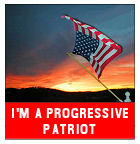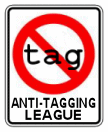A Bible Story
 A recent Time magazine cover story raised some interesting questions about the role of the Bible in public education. Although the article wasn't nearly as skeptical as I would have liked, the premise was interesting - the Bible might be a valuable teaching tool offering valuable insight into why our society is the way it is and why understanding those issues is worthwhile for budding adults.
A recent Time magazine cover story raised some interesting questions about the role of the Bible in public education. Although the article wasn't nearly as skeptical as I would have liked, the premise was interesting - the Bible might be a valuable teaching tool offering valuable insight into why our society is the way it is and why understanding those issues is worthwhile for budding adults.Although teaching the Bible has been adopted by several public school boards across the country, the story largely focuses on an evangelical Oklahoma religion teacher. Comments from the teacher and her students - including some non-Christians - indicate she is relatively neutral, presenting the Bible as a starting point for discussion and open to other points of view, even those she doesn't personally agree with. While I applaud the teacher for her intellectual honesty, using the Bible as an educational tool is still bothersome. Many committed atheists - including me - agree that fostering understanding between the religious and irreligious isn't a bad thing. But, there are many problems with no easy answers.
What About Everyone Else?
While teaching the Bible may indeed foster more discussion and better communications between Christians and non-Christians, it does so in a particularly limited way. The singular focus on Christianity tends to exclude other points of view - Judeo, Islamic, atheistic - no one is presenting their take on the world. If Christianity has much to offer, the same is true for other belief systems. The Bible is a rich work of literature and includes many common sense recommendations for daily living, but so do other religious and irreligious belief systems. The question becomes, what makes the Bible the chosen text?
Many Christians argue that American culture flowed directly from the Christian cultures in Europe. Many of our national trappings - from the Constitution to our money - contain explicit and implicit Christian references and some believe this is what makes the Bible "special". The country didn't start from a base of Jews, Muslims, or Buddhists, but from Christian sects - primarily protestant - that fled Europe to escape persecution. That much is true, but that argument doesn't address the rich native American religions already here, nor the diversification of religion since. We may still be a "Christian" nation, but that's a rapidly changing condition that suggests the Bible may not be the universal religious text needed for the job of fostering religious understanding.
Trust Is An Issue
Quite frankly, there is an issue of trust too. Over the past decade, evangelical Christians have become more vocal in evangelizing the public square. From bogus Wars on Christmas to hanging the Ten Commandments in every courthouse, they believe the country is literally going to hell in a handbasket and God has chosen them to save us all. In the process, they trample the religious views of those who don't believe in hell as well as those who picture a God that happens to be different than theirs. This work isn't done in the spirit of understanding, but as a different - although no less virulent - strain of religious persecution their forefathers fled centuries ago. However, denigrating religion as the universal province of the weak and stupid is every bit as wrong as imposing a personal religious belief system on others and that doesn't help.
The core issue - as is usually true - is not whether the Bible contains useful knowledge or fosters open discussion (it obviously does), it's about people believing their way is the only way and being too pigheaded to back down. If our society was as truly inclusive as we like to think, bringing a Bible into class for a rational, sociological discussion would be a no-brainer. So would a discussion on the merits of Islam. So would enlightening others on the benefits of atheism. But, we don't live in that society. We live in one where distrust, anger, and stubborn pride rules. In many ways, it's no more advanced than in the days Christians believed Jesus walked the earth. All religions - and atheists too - have much to learn and change. As things stand now, using the Bible as a teaching tool has some promise, but until these thorny problems are addressed, it's just promise, not reality. Regardless of what you believe, we're just not ready yet.
Unfortunately, that's part of what makes us human.
Tech Tags: religion politics education omnipotent+poobah
Labels: politics, religion, society
Truth Told by Omnipotent Poobah, Thursday, March 29, 2007







